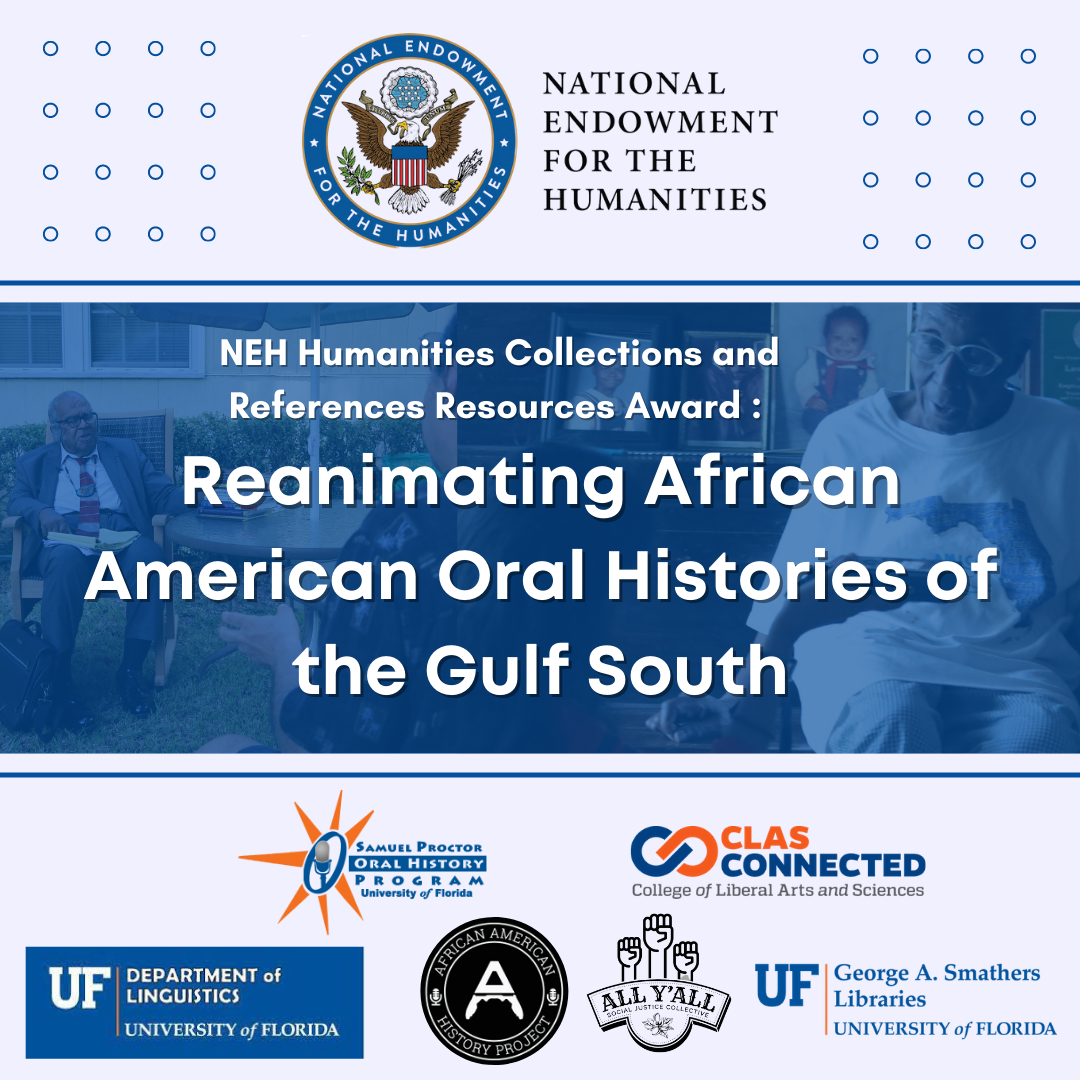Congratulations to Dr. Kevin Tang and his co-authors, who were awarded a National Endowment for the Humanities (NEH) Humanities Collections and Reference Resource Award. More on the award is below:
The Department of Linguistics, the Samuel Proctor Oral History Program and the George A. Smathers Libraries has been awarded $349,990 from the National Endowment for the Humanities (NEH)’s Humanities Collections and Reference Resources Award. The project team consists of Dr. Kevin Tang (PI, Linguistics), Dr. Paul Ortiz (Co-PI, SPOHP), and Stephanie Birch, MA (Co-PI, Libraries), as well as a team of Co-Is: Deborah Hendrix (SPOHP), Dr. Laura Spears (Libraries), Brittany Kester, MA (Libraries), Joshua Martin, MA (Linguistics) and Dr. Rebekah A. Cordova (All Y’all Collective).
Their project, “Reanimating African American Oral Histories of the Gulf South: Tailoring Education and Research through Natural Language Understanding”, involves the reformatting and annotation of 500 oral histories of African Americans from the Gulf South, representing the stories of people who lived through the transatlantic slave trade up to the present day, as well as the development of a new web search interface and 150 curriculum modules for K–12 educators.
Abstract:
An interdisciplinary collaboration between UF Linguistics, Oral History program, and the Libraries will reanimate 500 interviews with African Americans in the Gulf South, a population absent from many other oral history collections, with rich annotations and a web-based customizable interface. Our design harnesses computational linguistic methods and is informed by the needs and expertise of three diverse user groups, resulting in a host of improved accessibility outcomes. For education, teachers will be provided an easy to use interface to enhance student engagement with localized curriculum using the interviews. For linguistics, researchers will have access to an unprecedented amount of spoken African American data to investigate African American language change and regionality, and racially-based biases in speech technologies. Finally, oral history programs across the country will be offered a new means of enhancing accessibility into their own archival collections.
